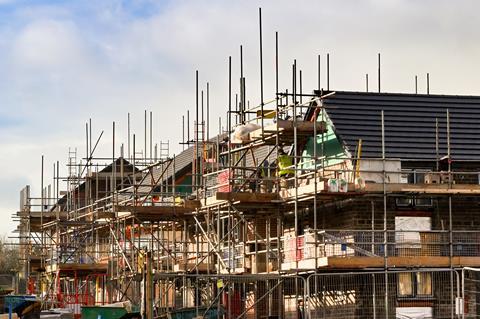Changes such as lower costs to businesses and increased certainty around planning may incentivise further investment over next decade
Reforms under the Planning and Infrastructure Bill to accelerate the delivery of new homes and major infrastructure could contribute between £3.2bn and £7.5bn to the economy, according to new government analysis.

The bill’s impact assessment, published by the Ministry of Housing, Communities and Local Government (MHCLG) today, said lower costs for businesses, fewer delays and increased certainty as a result of its measures could lead to further investment over the next decade.
As well as housing, new roads, railways and green energy projects are at the forefront of building plans.
Over the ten year appraisal period, in present values, the total benefits from the bill are estimated at £5.2bn at the lower end, while the total costs are estimated at £2bn. This implies an overall positive impact on society equivalent to £3.2bn.
However, the figure of the true economic value the reforms will have is suggested to be around £1bn higher as the current assessment does not account for recent amendments to the proposed legislation tabled at the committee stage.
These include streamlining the pre-application process for windfarms, new roads and other major infrastructure projects.
>>See also: The key elements (and omissions) of the Planning and Infrastructure Bill for housing
>>See also:The Planning and Infrastructure Bill offers hope for a system in desperate need of repair
Deputy prime minister and housing secretary, Angela Rayner said: “Getting Britain building will not only boost economic growth but ensure we deliver the homes and infrastructure working people deserve.
“This landmark pro-growth bill will get spades in the ground and the foundations laid for a new generation of homes, as we deliver on our Plan for Change.”
As part of Labour’s Plan for Change, the bill aims to remove barriers to delivering the 1.5 million new homes promised by the administration by the end of this Parliament.
It will also support the government’s push to make at least 150 decisions on major infrastructure projects in the same period, with 17 decided so far.
According to the impact assessment, the time it takes to secure planning permission for such schemes has almost doubled in the last decade to more than four years.
As well as increasing planning system efficiency, the bill aims to strategise the sector’s approach to nature recovery, unlock land and secure public value for large-scale investment.











No comments yet